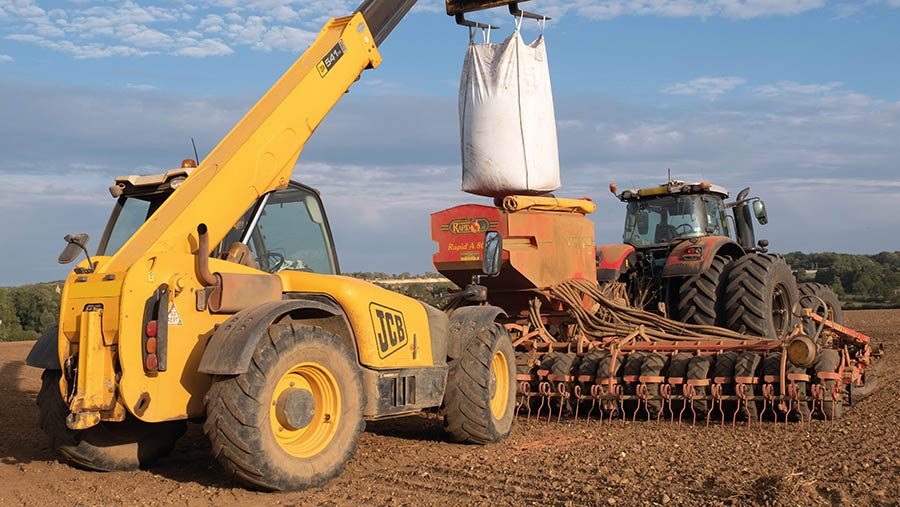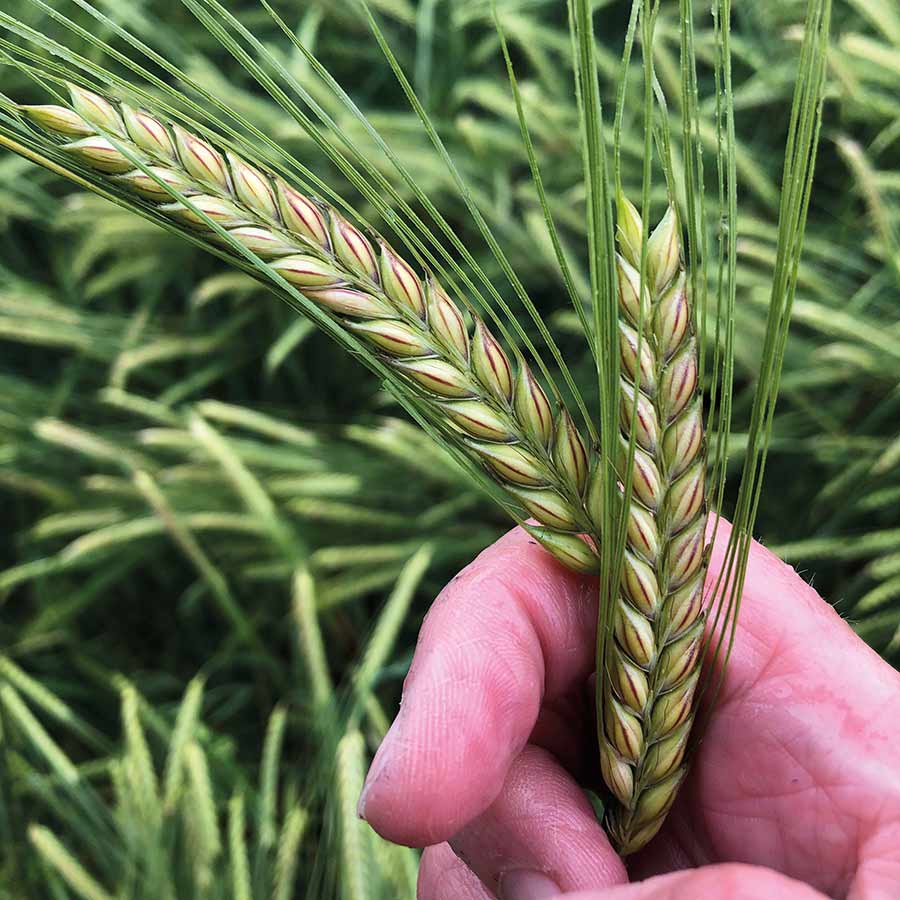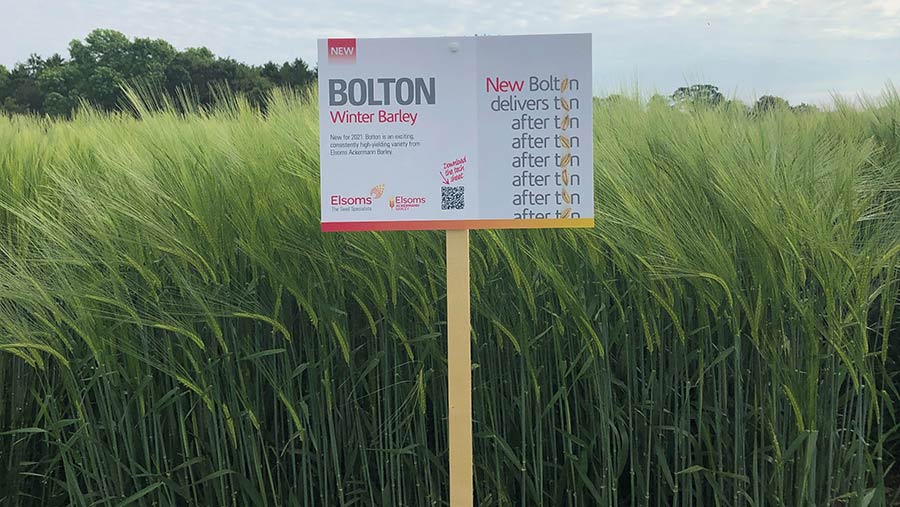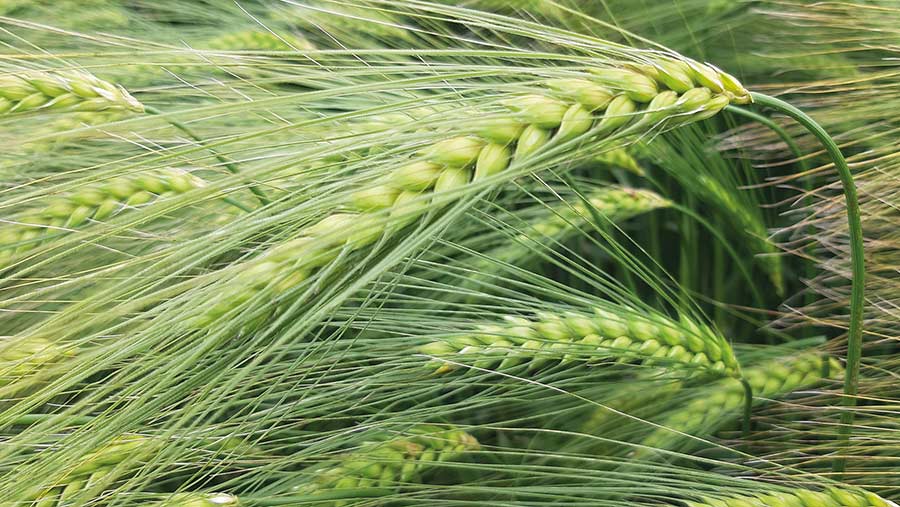What the 5 new winter barley varieties can offer farmers
 © Tim Scrivener
© Tim Scrivener Five new winter barley varieties are in the frame for this autumn, with a trio of two-row feed types bringing improved yield potential.
It’s good to see that these three have closed the yield gap with the hybrids again, says Niab cereals specialist Clare Leaman, especially as the 2020 season wasn’t a typical year for the crop.
See also: How northern farmers could benefit from new soft winter wheat
“For obvious reasons, a big chunk of both the existing and candidate winter barley varieties performed poorly last year. Only a few did well,” she says.
There were no new two-row malting types, but there were two six-row hybrids from Syngenta added to the Recommended List, which now has a total of 26 varieties on it.
Candidates
Improvements in disease resistance, rather than yield, are on offer from the candidate winter barley varieties.
The two-row feed varieties appear to offer a similar level of yield performance to those that were recommended for this year, but all currently have at least a 7 for rhyncosporium.
“Of those that have published data, the net blotch scores are very good too,” says Niab’s Clare Leaman.
Leading the pack is Elsom’s Lightning, which is an early-maturing type with 8s for rhynchosporium and net blotch and 7s for mildew and brown rust.
There are also two potential malting varieties – one of which is creating quite a stir. Feeris is a six-row variety with BYDV [barley yellow dwarf virus] tolerance and a yield of 104%, putting it way ahead in that category.
“It’s remarkable,” says Mrs Leaman. “Even if its malting potential comes to nothing, it has barley yellow dwarf virus tolerance to offer.”
The other BYDV-tolerant winter barley varieties – Amistar, Rafaela and Sensation – aren’t in the Recommended List system, so there is no information for growers to use to compare them, she points out.
“There is a choice, which is great, but currently there is no data. Having one of these types going through the testing scheme is good news.”
Two-row feeds
Turning to the two-row feeds, Mrs Leaman accepts that it is difficult to choose between KWS’s Tardis, Elsom’s Bolton and Senova’s Bordeaux, all of which have a UK yield of 106%.
“That’s compounded by the fact that two of them – Tardis and Bordeaux – dropped by 2-3% last year. The figures for them might look quite different after another harvest.”

Bordeaux winter barley © Senova
She highlights some differences between them in terms of disease resistance and specific weight. For wet weather areas, Tardis has the best rhynchosporium resistance with a score of 7, while Bolton has a 5 and Bordeaux a 4.
Their scores for the other diseases are similar, while Bolton has a maturity of +1 compared with Tardis and Bordeaux (0)
Bordeaux has the best specific weight of the three, at 69.9kg/hl, putting it just behind Cassia and Valerie for a characteristic that is valued on mixed farms, she points out.
“To be fair, none of them have a low specific weight, and it’s good to see that all of these are keeping up with the hybrids.”

Bolton winter barley © Elsoms
Existing choices
Behind these come some good existing choices. Like Bolton, Mountain bucked the trend and had a good year in 2020, while Orwell is currently the top-selling winter barley variety and has a standing score of 8.
The older varieties, Cassia and California, maintain a place in the market, while Valerie combines a good specific weight with early maturity and standing ability.
In the malting sector, Electrum continues its march. Fully approved and with the earliest maturity, it offers a 1% yield advantage over Craft.
Hybrids
The two new hybrid varieties, Kingston and Thunderbolt, offer a yield of 107%, making them the same as existing hybrids.

Thunderbolt © Syngenta
“It’s not immediately clear what they have to offer over Kingsbarn,” says Mrs Leaman. “They are both good new additions, but hybrid growers aren’t likely to see massive differences over their existing choices.”
Both are slightly earlier to mature (-1) and Thunderbolt has better all-round disease resistance, but has a 6 for resistance to lodging.
Seed trade view
Agrii seed technical manager John Miles expects to see a good uptake of Tardis, as it has the edge on heavy soils, but he recognises the similarities between the three new two-row feed varieties.
He expects existing choices Orwell and Valerie to remain in contention, having performed well on farm in recent years.
Otherwise, as a big supporter of hybrids, he sees newcomer Kingston as more of an all-rounder than Thunderbolt, but expects Belfry to sell well again. He also believes the Elsoms candidate, Lightning, looks very promising at this stage.
David Bouch, seeds manager at Hutchinsons, agrees there is little difference in yield between Tardis, Bolton and Bordeaux – both nationally and across the regions.
Otherwise, he stresses that there is still interest in proven varieties, with Orwell, Mountain, Surge, Valerie and Cassia all having a following, while California has a market in the South West for its straw.

